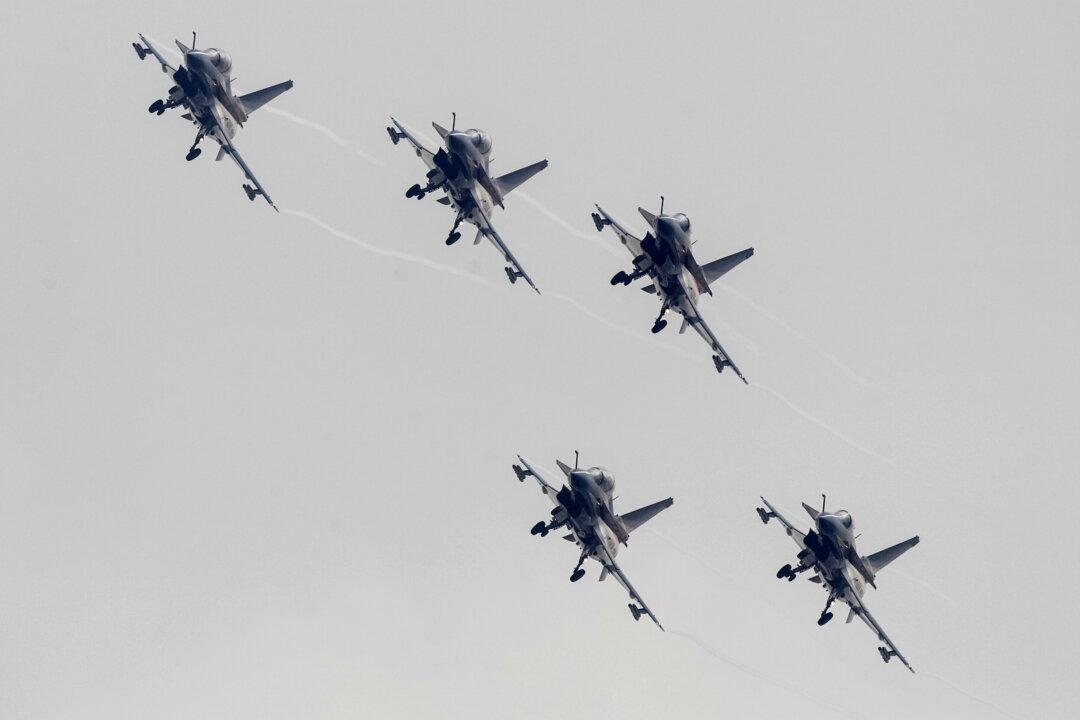Nine Chinese aircraft entered Taiwan’s air defense identification zone (ADIZ) in the hours following Russia’s invasion of Ukraine. Taiwanese air assets were scrambled in response, according to Taiwan’s defense ministry.
The Chinese Communist Party (CCP) has sent such incursions into Taiwan’s airspace continuously over the past two years in an apparent attempt to intimidate and exhaust Taiwan’s military.




